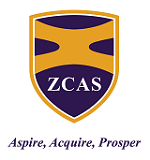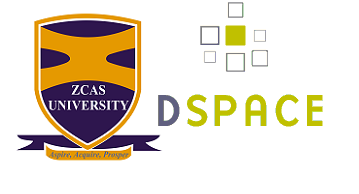Please use this identifier to cite or link to this item:
http://41.63.8.17:80/jspui/handle/123456789/225Full metadata record
| DC Field | Value | Language |
|---|---|---|
| dc.contributor.author | Mweshi, Geoffrey kapasa | - |
| dc.contributor.author | Mukosa, Francis | - |
| dc.contributor.author | Mweemba, Burton | - |
| dc.date.accessioned | 2024-05-29T13:10:12Z | - |
| dc.date.available | 2024-05-29T13:10:12Z | - |
| dc.date.issued | 2024-03 | - |
| dc.identifier.issn | 2320-9364 | - |
| dc.identifier.uri | http://41.63.8.17:80/jspui/handle/123456789/225 | - |
| dc.description.abstract | The purpose for this literature submission is to discuss how the Lean management Work with a manufacturing environment while collaborating with the culture and a comparative analysis of ‘Best Practices’ in Lean Management Systems; how well and how far in advance do local organizations plan for Lean Management Work, and how this could be transformed through explicit and implicit measures. What might be some cultural barriers to its implementation. The analysis will focus on the lean management systems with an exploration of Toyota production system unique approach to production which has dominated manufacturing trends despite that huge influence of the lean movement have been superficial. The research will cover sources of literature from personal understanding, learning details with some comprehensive and thorough coverage of lean management that is available in the organizations making attempts to achieving of lean, and by drawing the research insights from publications and books that have contributed to the revelations about the nature and issues that may be an important part of Lean and Toyota way and the Toyota production system. The study will cover aspects concepts of Tacit versus Explicit Knowledge, some challenges that relate to capturing, sharing and converting tacit knowledge into explicit knowledge, giving analysis of, and the key learning’s from the article, including the comments on the questions concerning cultural influences on Lean Knowledge Work; Commenting on the relationships between Lean Management Systems and: A) Conflict resolution B) Communications C) Structure D) Problem Solving and E) Leadership Engagement | en_US |
| dc.language.iso | en | en_US |
| dc.publisher | International Journal of Research in Engineering and Science (IJRES) | en_US |
| dc.relation.ispartofseries | Volume 12;Issue 3 | - |
| dc.subject | Leadership Engagement | en_US |
| dc.subject | Problem Solving | en_US |
| dc.subject | Structure | en_US |
| dc.subject | Communications | en_US |
| dc.subject | Conflict resolution, | en_US |
| dc.subject | Elicits Knowledge | en_US |
| dc.subject | Lean Management | en_US |
| dc.subject | Tacit Knowledge | en_US |
| dc.title | Transforming Explicit and Implicit Lean Knowledge of Supply Chain Management for the Accelerated Economic Development | en_US |
| dc.type | Article | en_US |
| Appears in Collections: | Research Papers and Journal Articles | |
Files in This Item:
| File | Description | Size | Format | |
|---|---|---|---|---|
| 120344511.pdf | 506.05 kB | Adobe PDF | View/Open |
Items in DSpace are protected by copyright, with all rights reserved, unless otherwise indicated.




